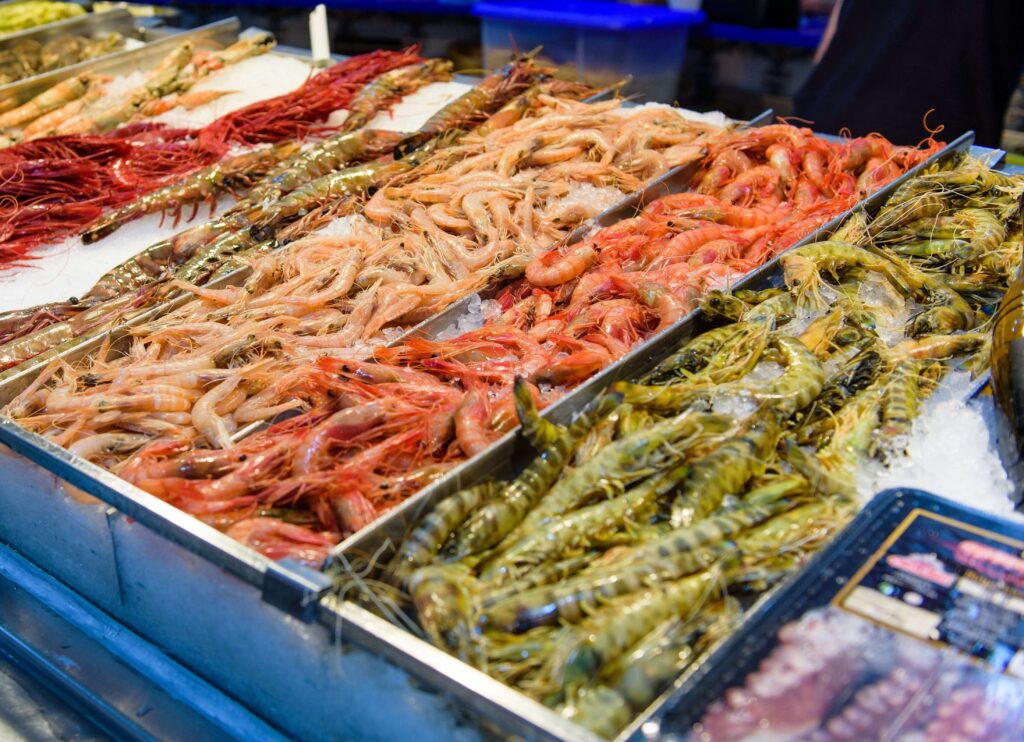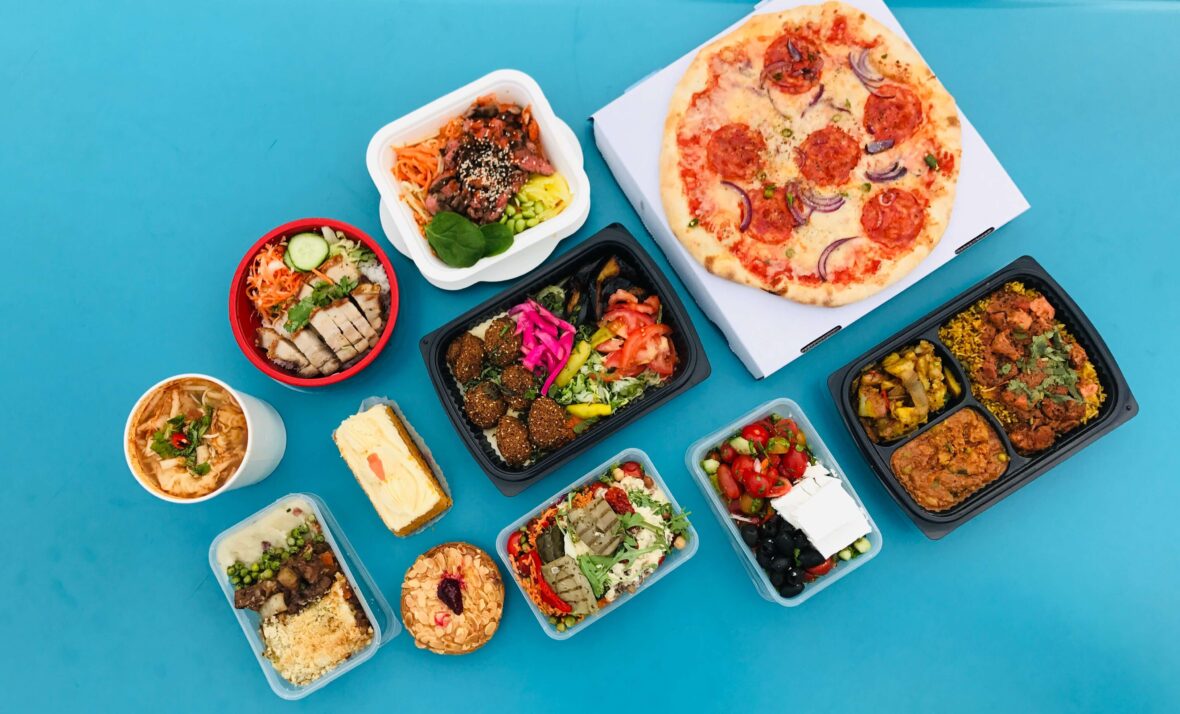Frozen food are a convenient, nutrient-dense component of your plan that shouldn’t be disregarded when thinking about the healthiest meal planning for effective weight loss. You can find the best frozen food options by using these dietitian-recommended methods. You already know how difficult losing weight can be, and it requires a lot of structure and discipline to succeed, but there are a number of ways to make it even easier. For instance, frozen food can work if you have a busy schedule and simply don’t have the time to prepare food from your daily meal plan.
If a frozen meal is substituted for a calorie-dense restaurant meal, hundreds of calories are saved. By selecting a frozen meal, you may avoid skipping meals, snacking on unhealthy foods, or becoming overly hungry and overeating later.
This article explain why frozen meals are excellent substitutes and additions to a weight-loss meal plan, along with some of the best options to try.

What is frozen food and how is it made?
Food that has been frozen in order to prevent spoilage and preserve quality is referred to as frozen food. Freezing is a process in which food is quickly cooled to enormously low temperatures. Food is carefully packaged and then frozen at temperatures below -18°C (0°F), which prevents the growth of bacteria, enzymes, and other microorganisms that lead to food spoilage.
Are Frozen Foods Healthy?
Food’s nutritional value really determines whether it is healthy or unhealthy after freezing; freezing doesn’t make food either way. When compared to frozen fruits and vegetables, frozen pizzas, snacks, and entrees may be less nutrient-dense than their fresh counterparts. However, frozen fruits and vegetables can still be just as nutrient-dense as their fresh equivalents. Your food will remain nutritious after it has been thawed if it was nutritious before it was frozen. Plain, frozen fruits, vegetables, meats, chicken, and fish are always a good choice. Whole grains are even possible to freeze.
Does Freezing Change Food’s Nutritional Value?
A food’s calorie count, fiber content, or mineral content are unaffected by freezing. The common of a food’s nutritional value will be preserved after freezing, though some vitamins (like folate and vitamin C) may change as a result of the freezing process. Moreover, freezing has no effect on a food’s fat, protein, carbohydrate, or sugar content. However, there can be changes in the fluid content, which are frequently visible when you thaw your food.
How to Negotiate Your Meal for weight loss?
Generally speaking, it’s not difficult to locate low-calorie microwaveable meals, but occasionally they don’t have the necessary amounts of fiber, protein, fruit, or vegetables for your meal plan. Here’s how to maximize the nutritional value of your meal to achieve all of your objectives:
1.Protein Supporters:
You can use various additions to boost the protein content of your frozen meal, such as shredded, part-skim mozzarella cheese, boiling eggs in water, edamame (soybeans), and low-sugar greek yogurt.
2.Veggie, Fruit, and Fiber Promoters:
To increase the fiber, fruit or veggie content of your frozen meal, try to use a glass of tomato juice, frozen cauliflower, broccoli, or green beans, baby carrots, bell pepper, baby spinach, and orange or apple.
3.Flavor Enhancers:
A little extra seasoning will go a long way toward giving your meal the flavor that is occasionally sorely lacking. Prefer to use chopped fresh herbs like basil, chives, or cilantro, freshly ground pepper, garlic powder, red chili flakes, or hot sauce, and a squeeze of lime or lemon juice, particularly for meals based on fish or chicken.
What are The Advantage of Frozen Food diet?
Consuming frozen food has a number of advantages, such as convenience, a longer shelf life, and nutrient preservation. New freezing techniques help maintain the nutritional value of the food, making frozen food a quick-preparation, easy-meal-planning, and low-waste food option for those with busy schedules.
Frozen food is especially useful for those who would normally rely on takeout because they don’t have the time or desire to cook. In order to manage hunger while losing weight, it is advice eating more lower-energy-density foods.
What are The Disadvantages of Frozen Food diet?
Frozen diet foods frequently contain a high amount of preservatives and sodium, and are less nutrient-dense than meals you prepare yourself. For high-risk eaters, such as those who have high blood pressure, sodium is even more crucial. There are many frozen diet meals that are under 300 calories, and three frozen meals a day won’t be enough for most people, unless they use supplement for additional calories. Your body’s metabolism slows down as a result of undereating, which makes it more difficult to lose weight. For people who lead active lifestyles, it is also detrimental.
A lot of frozen meals don’t contain enough fruits and vegetables to fulfill your daily nutritional needs. Vitamin deficiencies can result from eating only frozen diet meals and no additional fruit or vegetables.
How to Choose Frozen Foods for Weight Loss?
Finding the ideal frozen meal involves more than just looking for an entrée with a visually appealing image or seeing what’s on sale. To determine whether your choice satisfies your objectives, read the Nutrition Facts label. Here are a few tips for selecting frozen foods that honor your personal taste and health values.

1.Protein and Fiber Content:
Protein improves satiety, while fiber gives your food more bulk, keeping you fuller for longer. These two elements will aid in preventing overeating, leading to a more effective weight-management plan. Choose a dish that has at least 15 grams of protein and 5 grams of fiber.
2.Compare Labels:
The saturated fat, sodium, sugar, and calorie content of frozen meals and snacks may be higher while the amount of vital vitamins and minerals may be lower. If you must choose these things out of necessity for reasons of cost, time, or convenience, think about completing your plate with some vegetables or another nutrient-dense food. However, you can find frozen foods that are higher in nutrients if you compare labels or look in the natural foods section of the grocery store.
3.Calorie Count:
If you aim to weight loss include low-calorie frozen meals in your meal plan. Make sure your weight loss plan doesn’t go over whatever your personal goal is. Food in a closed container should weigh the same before and after freezing. However, the food you serve may weigh a little less if a lot of liquid drains from the food as it thaws.
4.Skip the Breading:
The most nutritious frozen meats, fish, seafood, and poultry are those that are prepared without the use of any additional ingredients. Avoid breaded chicken, fish sticks, corn dogs, and other frozen foods with batter or breading if you’re looking for low-calorie options. Prefer to buy unbreaded fish fillets, shrimp, and chicken breasts in the freezer.
5.Keep It Simple, For the Most Part:
Pick plain vegetables more frequently than items that also contain sauces or other flavors. Choose sauces that are made with less fat and sodium. Choose fruits that are frozen without additional sugar or syrup if you are concerned about added sugars in fruits. When deciding which variety will suit your taste and health preferences, keep in mind that frozen fruit smoothie mixes are frequently made with added sugars.
6.Serving Size:
Take frozen food interpretations and purchases out of context. Even meals that appear to be single servings occasionally have multiple servings listed.
7.Sodium Content:
Choose for products with less than 700 mg of sodium to stay within the Suggested Daily Intake (RDI) of 2300 mg per day.
Some Tips for Best Frozen Foods for Weight Loss:
Here are some helpful tips when picking out your frozen diet foods that will help you with a healthier diet:
1.Frozen Fruits and Vegetables:
Avoid frozen vegetables that have any kind of cheese sauce when shopping. Both the calories and saturated fat in these meals are high. Avoid frozen fruit that has been packed in syrup, too. The fruits or vegetables you buy should only have the fruits or vegetables themselves listed as ingredients. Beans, broccoli, carrots, and cauliflower florets are all nutrient-dense, low-calorie vegetables that are readily available in supermarkets in chopped form, making it simple to meal prep with them.
Fruits that are frozen: Although blueberries and raspberries are imported, they are readily available in frozen form. Not to mention the high antioxidant content, which reduces inflammation and fights obesity. Frozen Spinach: Smoothies made with frozen spinach taste much better than those made with fresh spinach because the nutrients are all still present. Green peas are mainly available in the winter and in frozen form all year long, as was previously mentioned.
Kale is one of the foods most conducive to weight loss. Additionally, frozen kale tastes far superior to fresh kale and enhances the flavor of smoothies.
2.Chicken or Turkey Burgers:
When preparing this kind of frozen food, always make sure to follow the instructions. While some of these are raw, others are precooked. The same amount of lean protein is present in frozen chicken as it is in fresh chicken.
3.Frozen Fish such as Salmon:
The omega-3 fatty acids in salmon help to increase metabolism, curb appetite, and also accelerates the fat-burning process.
4.Veggie Burgers:
Always make sure that soy is either the first or second ingredient.
5.Frozen Meals:
There are two categories of frozen meals:
- Light meals, which have fewer than 300 calories and 8 grams of fat, and
- Regular meals, which have 360–400 calories and as much as 25 grams of fat.
If at all possible, choose meals that are loaded with vegetables as well. These meals contain fewer calories, but they also contain more vitamins and fiber. When consuming a frozen meal, pair it with a whole-wheat roll, a salad, or a side of fruits or vegetables. You won’t just feel fuller and less likely to snack after a meal, but you’ll also be better able to meet all of your nutritional needs.
Frozen diet foods are unhealthy on their own, which is a key lesson to learn. Even so, it’s crucial to read nutritional labels carefully and adjust your meal preparation accordingly. Most importantly, you should follow the proper diet if weight loss is a priority.
Conclusion
In addition to being delicious, frozen food can be a sensible and nutrient-dense addition to or replacement for your effective weight loss plan. When you’re busy or just don’t feel like cooking, stocking your freezer with frozen meals made from the best foods for weight loss can be helpful. A tasty and sensible addition to your weight-loss plan can be frozen meals. Prepare the healthiest frozen meals in your freezer in advance of busy days and times when you don’t feel like cooking. Frozen foods also contain a high amount of preservatives and sodium, however they should be selected wisely while you intend to lose weight.
FAQ
How long can frozen food be safely stored?
Depending on the food’s packaging and type, frozen food can be stored for a variety of lengths of time. As long as it is kept at a constant temperature of 0°F (-18°C) or below to preserve its quality and avoid freezer burn, frozen food can typically be safely stored for several months to a year.
Can frozen food help with weight loss?
When used wisely, frozen food can be a beneficial part of a weight loss plan. People can include nutritious foods in their diet while controlling portion sizes by choosing:
- Low-calorie,
- Portion-controlled frozen meals,
- Choosing frozen fruits and vegetables,
- Manage calorie intake, and
- Consistent exercise can help you successfully lose weight.
For the best nutrition and long-term weight management, it’s vital to take into account the overall quality of your diet and include fresh, whole foods whenever possible.
What are some healthy frozen food options for weight loss?
Look for frozen foods that are low in calories, saturated fats, and added sugars when searching for healthy weight-loss options. Choose whole grain frozen meals, frozen fruits and vegetables, lean protein sources like skinless chicken or fish, frozen yogurt or sorbet as healthier dessert substitutes. Always read labels and choose items with few additives and preservatives to live healthier life.
Are there low-calorie frozen meals available for weight loss?
Yes, there are a lot of low-calorie frozen meals available that are made with that goal in mind. These meals are frequently portion-controlled and have carefully calculated calorie contents to support calorie reduction and portion management. For people looking to lose weight while consuming a nutritious and balanced meal, these are a practical choice.
Do frozen meals provide balanced nutrition for weight loss?
Yes, if chosen carefully, frozen meals can offer balanced nutrition for weight loss. While keeping an eye out for options with a variety of food groups, such as lean proteins, whole grains, and lots of vegetables, keep in mind the calorie count and portion sizes.
How can I incorporate frozen food into my weight loss diet?
You can use a convenient addition to homemade meals, like frozen fruits and vegetables to smoothies or salads, low-calorie frozen meals as portion-controlled options, and frozen protein sources, such as skinless poultry or fish. To ensure a balanced and nutrient-rich diet, it’s critical to read labels, choose products with few additives and preservatives, and pair frozen food with fresh ingredients.
Are frozen fruits and vegetables good for weight loss?
Fruits and vegetables that have been frozen are a great option for weight loss. They are frequently selected at the height of ripeness and rapidly frozen, maintaining their nutritional value. They can be practical choices for adding fiber, vitamins, and minerals to your diet while controlling portion sizes and calorie intake.
Reference used:
https://www.mynetdiary.com/healthiest-frozen-meals.html
http://betterme.world/articles/best-frozen-meals-for-weight-loss/





